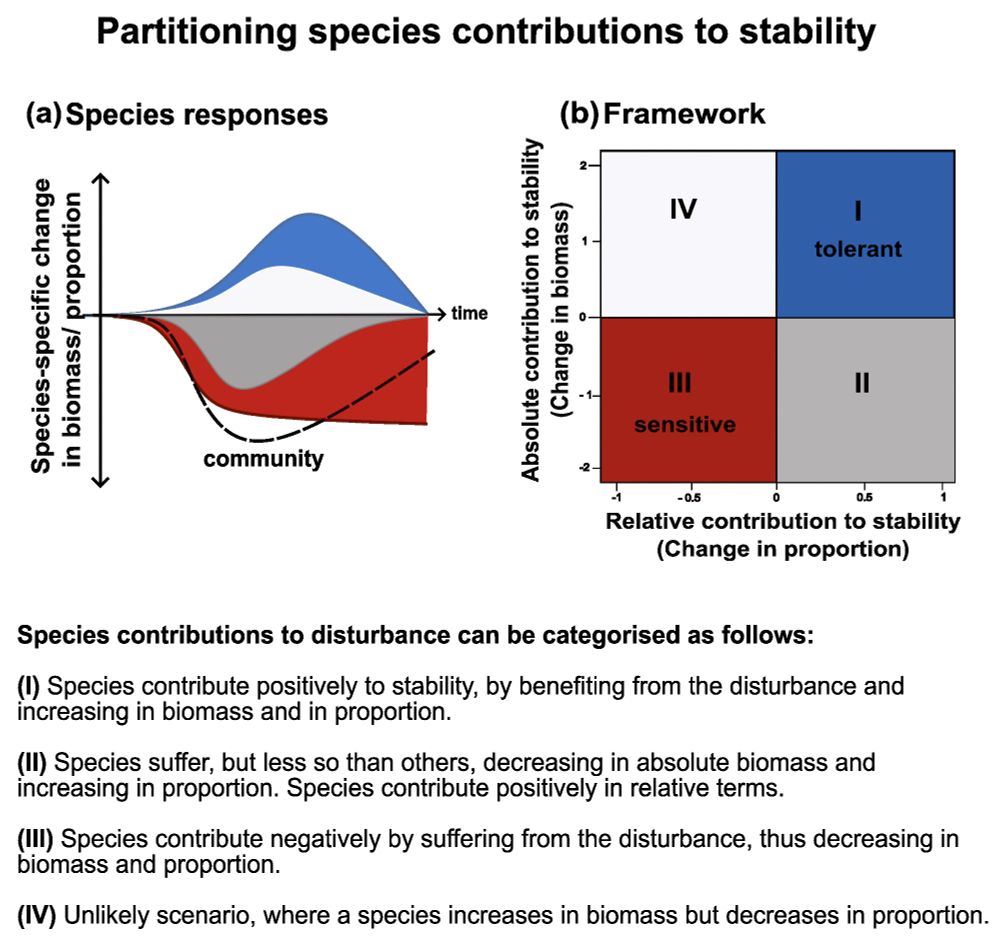Passionate about ecological stability, environmental change, community ecology, food web, but also climbing, mountaineering, ski touring, (gravel)biking.

“The Imbalance of Nature: The Role of Species Environmental Responses for Community Stability”
📖 Read it here: onlinelibrary.wiley.com/doi/10.1111/...
We tried to answer the question: What drives community stability in fluctuating environments?

“The Imbalance of Nature: The Role of Species Environmental Responses for Community Stability”
📖 Read it here: onlinelibrary.wiley.com/doi/10.1111/...
We tried to answer the question: What drives community stability in fluctuating environments?
@pennekampster.bsky.social @fancescopolazzo.bsky.social
thetrophiclink.org/posts/2025-0...
@pennekampster.bsky.social @fancescopolazzo.bsky.social
thetrophiclink.org/posts/2025-0...
I am looking for a PhD student to work on the project "A mechanistic theory of functional responses: zooming into movement behaviour to understand and predict predator-prey interactions"
euraxess.ec.europa.eu/jobs/342402.

I am looking for a PhD student to work on the project "A mechanistic theory of functional responses: zooming into movement behaviour to understand and predict predator-prey interactions"
euraxess.ec.europa.eu/jobs/342402.
"Linear functional ecology: Rethinking species contributions to ecosystem functions"
Zoom link via rb.gy/3pf8dh

"Linear functional ecology: Rethinking species contributions to ecosystem functions"
Zoom link via rb.gy/3pf8dh
www.freetagliamento.org/it_IT/home-e...

www.freetagliamento.org/it_IT/home-e...
We introduce a framework on how to partition species contributions to ecological stability in disturbed communities based on species absolute change in biomass and relative change in proportion.

We introduce a framework on how to partition species contributions to ecological stability in disturbed communities based on species absolute change in biomass and relative change in proportion.
onlinelibrary.wiley.com/doi/10.1111/...
Have a look at our new proposed way of calculating response diversity when multiple environmental drivers change simultaneously.

onlinelibrary.wiley.com/doi/10.1111/...
Have a look at our new proposed way of calculating response diversity when multiple environmental drivers change simultaneously.

